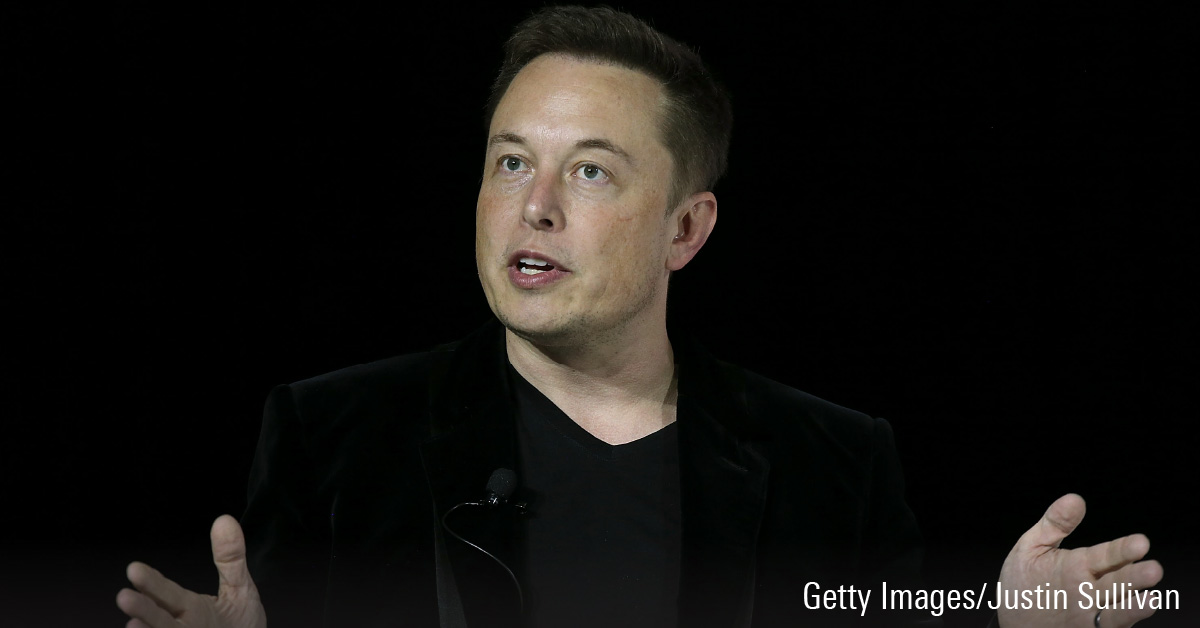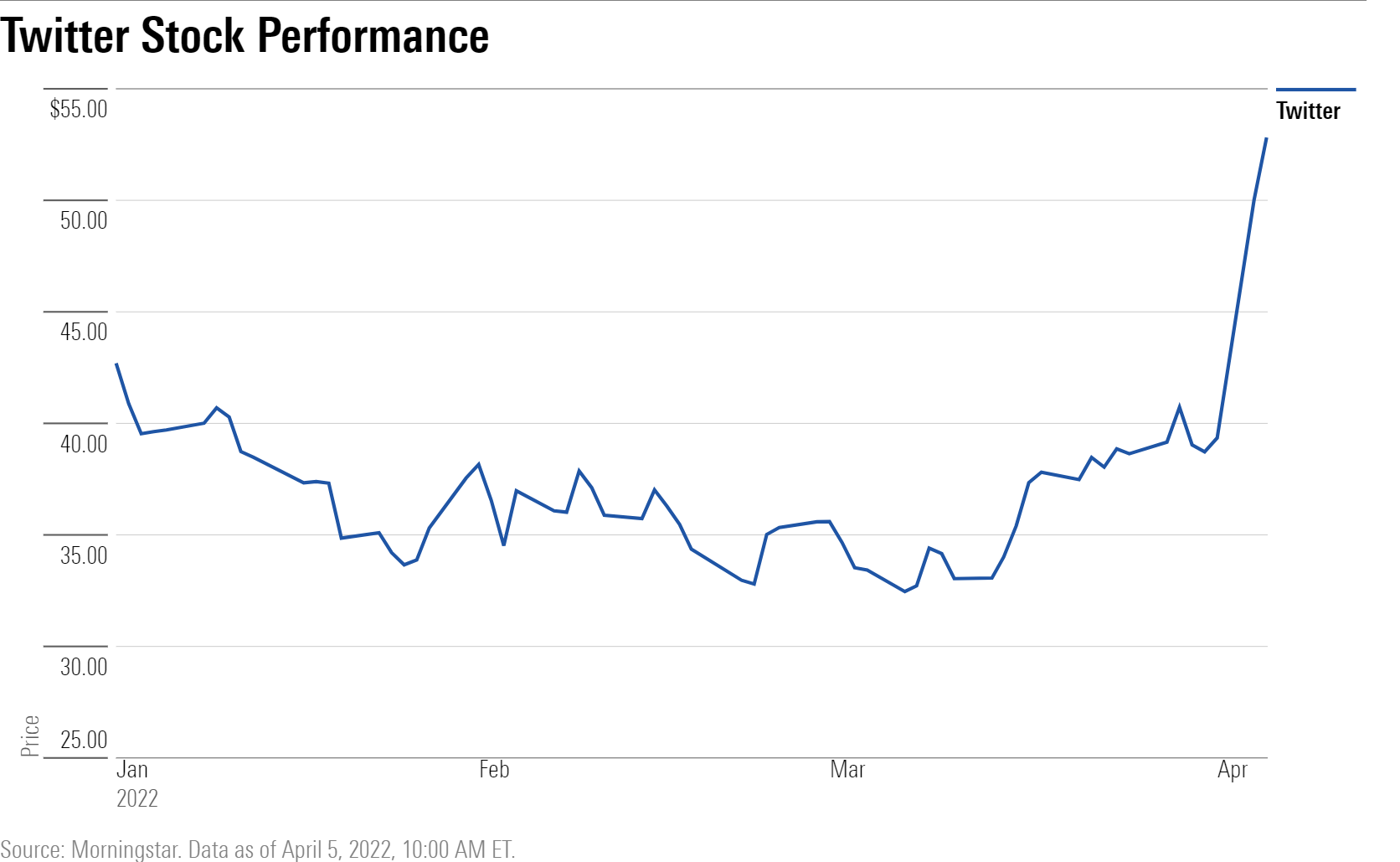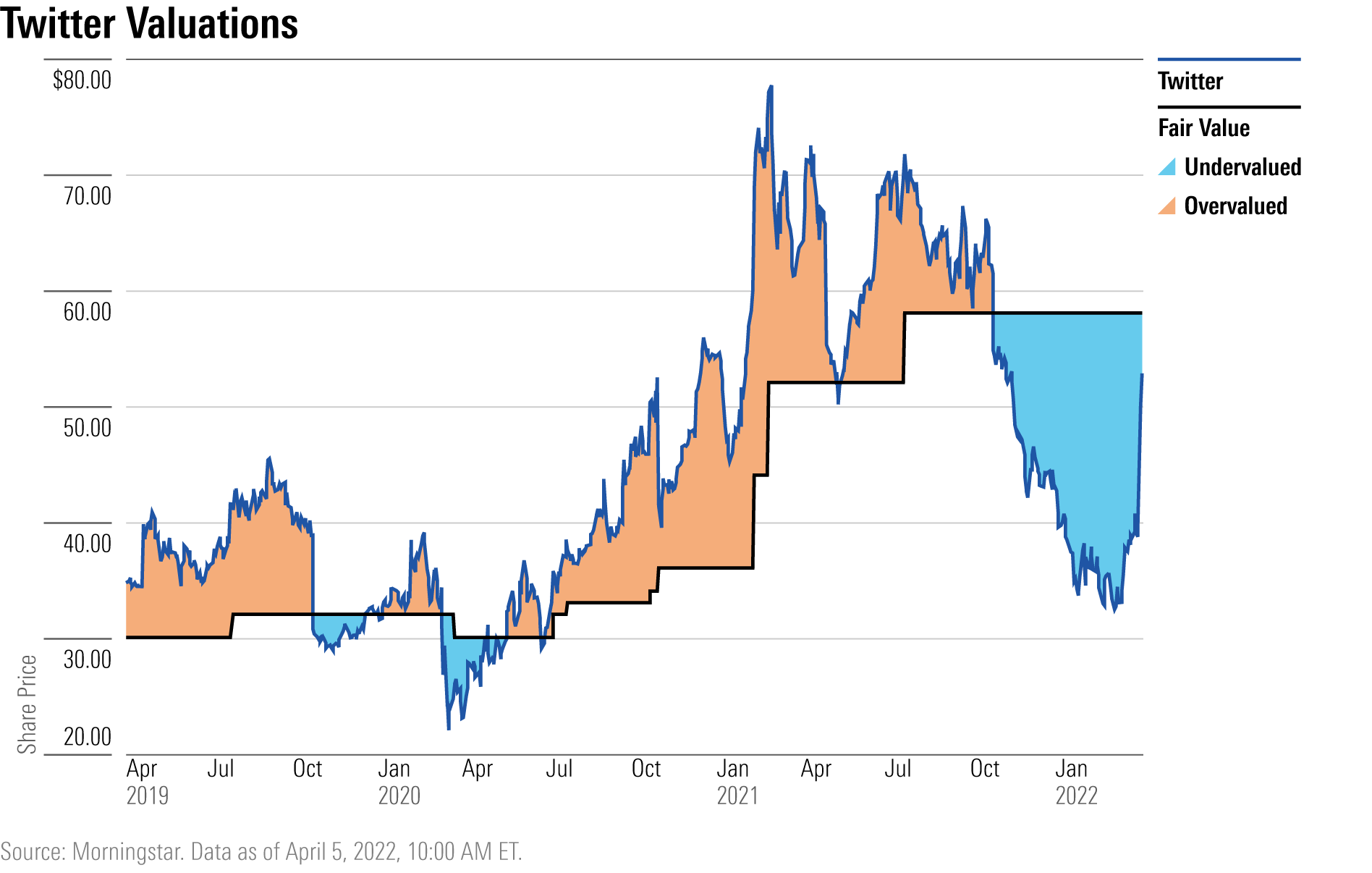What Should Investors Make of Musk's Twitter Stake?
With the jump in Twitter stock after Musk's purchase, shares are still undervalued, but heading into fairly valued territory

Editor's note: The following is an updated version of an article originally published April 4, 2022.
Elon Musk is living up to his reputation for disruption, this time with the outlook for Twitter's stock.
Twitter TWTR shares rocketed higher Monday on news the Tesla founder and chief executive took a stake in the social media platform, making him the company’s largest outside shareholder. On Tuesday, Twitter said Musk would be joining the company's board.
As of Tuesday morning, Twitter shares had risen roughly 35% to $53.25 per share from Friday's close of $39.31. Monday's increase of 27% was the biggest one-day move in the company since it went public in 2013. The stock has been trending higher since Musk bought his stake on March 14 for an estimated $2.4 billion.
Twitter Stock Performance

At current levels, the stock remains below the $58 fair value estimate Morningstar senior equity analyst Ali Mogharabi assigns to the stock. However, at $51 per share as of midday Monday, the stock is in what Morningstar considers fairly valued territory. With the rally, Twitter shares have risen to a Morningstar stock rating of 3 stars from 4 stars.
Musk’s 9.2% stake, disclosed in a regulatory filing with the U.S. Securities and Exchange Commission, is considered passive. Mogharabi sees his stake as impacting Twitter’s long-term strategy.
"Musk could seek to influence the openness of the platform and how it controls content or push to invest in the subscription model more aggressively as it has with Twitter Blue," Mogharabi wrote in a note on the news on Musk's stake in Twitter.
Twitter Valuations

Mogharabi notes that Musk's stake and his addition to the board come after the Tesla founder has publicly expressed—via Twitter—negative views of the company's chief executive Parag Agrawal.
"In different tweets (mainly one in December 2021 after the announcement of Parag Agrawal replacing Jack Dorsey as the CEO, and a few last week) Musk has implied that he thinks the platform limits free speech and that a new one must be created (with agreement from more than 70% of over 2 million Twitter users that responded to a poll he posted)," Mogharabi wrote. "Musk has already indicated that he did not agree with the appointment of Agrawal and that he desires some changes."
Musk's Twitter stake also comes as the outspoken billionaire continues to battle the Securities and Exchange Commission in connection with a 2018 consent decree that calls for Tesla lawyers to approve tweets and other statements that could be material to the electric vehicle maker.
Musk came under scrutiny for comments posted on Twitter about Tesla that were considered to be material. With 80.2 million Twitter followers, Musk argues that the consent decree is limiting his free speech.
His stake dwarfs that of founder and former chief executive Jack Dorsey, who owns 2.25%. Vanguard Group has a 8.39% stake, and Morgan Stanley Investment Management, at 8%, are the next biggest holders after Musk. Unlike other major media companies, Twitter has no controlling shareholder, giving rise to takeover speculation.
Dorsey resigned as chief executive in November 2021, nearly two years after activist investor Elliott Management began agitating for his ouster. Prior to Dorsey's departure, Twitter agreed to give Elliott a board seat. The company also accepted a $1 billion investment from Silver Lake Partners, whose co-chief executive and managing partner, Egon Durban, also joined the company's board. Durban advised Musk when he explored the idea of taking Tesla private. It was Musk's Aug. 7, 2018, tweet that he was considering taking Tesla private at $420 a share, and had funding secured, that got him into hot water with the SEC.

/s3.amazonaws.com/arc-authors/morningstar/ed88495a-f0ba-4a6a-9a05-52796711ffb1.jpg)
/cloudfront-us-east-1.images.arcpublishing.com/morningstar/MX3XFKYTXVG2RGAL3JZKVC526Y.png)
/cloudfront-us-east-1.images.arcpublishing.com/morningstar/ZPLVG6CJDRCOTOCETIKVMINBWU.png)
/cloudfront-us-east-1.images.arcpublishing.com/morningstar/Z34F22E3RZCQRDSGXVDDKA7FGQ.png)
:quality(80)/s3.amazonaws.com/arc-authors/morningstar/ed88495a-f0ba-4a6a-9a05-52796711ffb1.jpg)